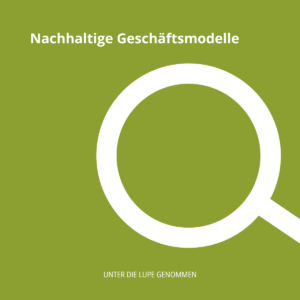New measures like EQ, AQ, and CQ are becoming more important nowadays as the IQ.
Reading time: 8 minutes

In uncertain, unpredictable, and fast-paced times, ongoing change has become the new normal. Therefore, leaders have not only to cope with that personally, but they also must ensure that they support their teams through all that in a favorable environment.
The four important quotients, the IQ, EQ, CQ and AQ
Looking back how leadership quality was measured, it came down in the very beginning to the IQ, the intelligent quotient.
The IQ, the Intelligent Quotient
It gives an idea of the individual cognitive ability compared to the general population. For example, the ability to understand reasons, solve problems and recognize relationships. Therefore, the score does not change much over time.
Methods to evaluate the individual IQ exists since the late 19thcentury. It was manifested that a high IQ is the prerequisite to achieve success and gain high level executive positions. A higher level of IQ enables people to learn and solve problems faster. The German psychologist William Stern introduced in 1912 the formula to measure the IQ. It is the ratio of mental age to chronological age times 100. In literature Albert Einstein and Stephen Hawking were the most cited examples with an IQ of 160.
The IQ idea was deeply integrated within tests and academic assessments or hiring and promotion systems for a long time. Even the IQ tests seem quite abstract, mathematical and do not consider things like creativity, wisdom and other aspects of intelligence, the score can give a good indication of intellectual abilities and the potential to manage complexity.
The EQ, the Emotional Intelligence Quotient
Decisions will not always be pure rational; the emotional level must be considered as well.
“The Emotional Intelligence is a form of social intelligence that involves the ability to monitor one’s own and others’ feelings and emotions and the ability to use this information to guide one’s thinking and action.”
John D Mayer and Peter Salovey
Simply said to be empathetic and authentic in what you say and what you do. EQ is a critical component of interpersonal skills, especially in management or leadership roles. People with a high EQ are better equipped to handle complex situations and navigate through today’s hyper connected world.
This started a huge wave, which the better-known Daniel Goleman gave additional power with his book and concept of Emotional Intelligence.
He identified that four factors are associated with emotional intelligence:
- Self-Awareness. Recognize and understand your emotions. Access your strength and limitations. Increase your self-confidence
- Self-Management. Be aware, manage, and express your emotions carefully. Avoid impulsive decisions.
- Social Awareness and Empathy. Learn to recognize the emotions of others. Try to understand their perspective.
- Relationship Management. Be aware of your own emotions and the emotion of others, to develop rapport and effective relationships.
Goleman’s research points out that EQ is an absolute requirement for better performance and great leadership.
Asking yourself those questions will help you to get a glimpse of your EQ capabilities:
- Are my thoughts and my decision-making process affect by my current mood?
- Can I put myself in the shoes of others to gain their perspectives?
- Do positive or negative traits of others influence my point of view?
- Is it difficult for me to admit, I am wrong?
“Self-discipline rather than intelligence is the new narrative for success. Therefore, new measures like EQ, AQ, and CQ are becoming more important nowadays.”
Angela Duckworth
Let us explore the two other quotients.
The CQ, the Curiosity Quotient.
Tom Friedman uses first time in a 2013 New York Times article the term Curiosity Quotient. His thesis described that the fast pace of modern technology makes it easier for individuals with a high CQ to take challenges and innovate. In times where routine work will be conducted increasingly from ML and AI, those people will stand out with their creative results, because robots cannot be curios.
Curiosity accelerates learning and understanding new things, because our limbic brain system rewards that if you in a curios mood. A natural curiosity even helps learning not-so-interesting things.
In 2014 a Harvard Business review article ( https://hbr.org/2014/08/curiosity-is-as-important-as-intelligence ), Tomas Chamorro-Premuzic wrote that people with a higher CQ have a hungry mind and are more inquisitive and open to new experiences, however they are quickly bored with routine. In general, they are more tolerant of ambiguity and invest more time in knowledge acquisition, especially in areas such as science and art. They excel in producing simple solutions for complex problems.
AQ, the Adversity Quotient
The Adversity Quotient is described as the ability to adapt to and thrive in a constantly changing environment, the capability to handle adversities well.
According to Paul Stoltz, it can be seen as the measure of someone’s resilience and adaptability. In his book, Turning Obstacles into Opportunities (1997), he claimed, that people with a higher level of AQ respond to challenging situations more effectively than other. They can better reserve their energy during times of intense stress, perform better while staying healthier, because of their positive attitude.
Further tendencies associated with a higher AQ are greater optimism, better problem-solving capabilities, innovation, agility, and accountability. With the changing nature of work, including more uncertainty, anxiety, pressure, and longer life working times, developing, and increasing the level of AQ becomes even more important.
There is the quite collective agreement that the level of IQ is something you are born with, which is only half of the truth. There are still ways to improve your intellectual capabilities in a moderate range. In opposite, it is written, that EQ, CQ and AQ can be developed and improved more effectively.
“I have no special talents. I am only passionately curios.”
Albert Einstein
To determine your Quotient scores you will find a couple of free tests for each of the four quotients on the internet. It is interesting to take a few of these tests, however, do not focus too much on the results. See them as an indication and as a starting point for your own thought process.
How can you grow the four Quotients?
Now that you are aware of your IQ, EQ, CQ, and AQ abilities, it might be interesting to increase the one or the other.
How to increase your Intelligence Quotient?
Increasing your Intelligent Quotient is all about to stimulate and grow your brain.
- Play chess. It is an intricate and complex game. It stimulates the left and the right brain side, improves concentration and your problem-solving capabilities.
- Increase cardiovascular exercise. An increased fitness level is associated with better cognitive capabilities and can raise the verbal intelligence.
- Start meditating. Meditation lowers stress levels and increases deep cognitive processing.
- Sleep good and enough.
- Learn a new language or a music instrument. By learning new complex rules, you will force cortical thickening which can increase the volume of the hippocampus.
How to increase your Emotional Quotient?
When you want to increase your Emotional Quotient, you must understand your own and others’ emotions and how this affects your thinking and doing.
- Pause. if you are in an emotional moment, pause for a few seconds before you speak or react, i.e., replying to an email.
- Self-Awareness. Be mindful of your emotions: pay attention how your mood is impacting your productivity and communication with other.
- Self-Management. Take responsibility for your emotions and your reactions, do not use them as an excuse.
- Social Awareness. Try to acknowledge other point-of-views. Other people may have different values and experiences. Therefore, they feel different on the same situation
- Relationship Management. Pick-up people where they are, with all their emotions. This helps you to develop trusted relationships.
How to Increase your Curiosity Quotient?
Open your eyes and mind and exploring your environment helps you to raise your Curiosity Quotient.
- Discover and share your passion. What interests you? Figure it out and share it with others. This helps you and other to deepen your understanding and become an expert over time.
- Listen and ask instead of putting yourself in the middle. This could help you to gain new perspectives, explore new ways. Good questions are: What is your position? Why is this important to you? What triggers your thinking?
- Teach and be taught. This will not increase the knowledge of others, but also yours.
- Challenge you own perspective. Even if you are 100% sure that you are on the right track. It helps you to look over your own plate.
- Get out of you comfort zone. Take over consciously challenging assignments and grow with them. Do not be afraid when you fail while trying out new things
How to increase your Adversity Quotient?
Increasing you Adversity Quotient means putting yourself into the driver seat.
- Acknowledge change. This is the first crucial step. Without recognizing the need for a change, you cannot act.
- Take ownership. Find what is causing the change, what is driving the change. Be active not reactive, take the challenge. And make yourself clear, why you are embracing that change. Write it down and look at it during though time and stormy waters. It will help you to keep your motivation and resilience.
- Prepare you self for the change. How can you respond to the new requirements? What will happen next? What resources do you need, people, money, skills, etc. Develop a plan. Define your goals.
- Build the solution. Problem solving starts with identification of the problem. Take your time, do not jump immediately to the solution. Develop solution alternatives, decided for the most feasible solution, but do not throw away the others. Someday you need a plan B.
- Execute. Walk the talk, stay accountable whatever happens. Remind yourself why you have embraced the change and what are your goals.
Get better – every day
Rome was not built in a day, neither sustainable improvement of the four Quotients can be achieved in a brief period.
Especially as those topics are not theoretical only, they require lot of practice, trial and error, reflection and lessons learnt.
Figure out which of your Quotients you want to increase first. Decision criteria might be either, the least developed, the most needed in professional and/or private life or simply the most interesting one.
Set your goal that you want to improve your Quotient 2 percent week and reserve an appropriate daily or weekly time slot for that. When you stick to your goal to increase 2 precent per week, you will achieve 100 percent per year, sustainable. How does this sound?
Over time you will recognize that a lot of topics are related, depended, and influence each other in a positive way. This means the learning curve will grow exponentially.
Let me to encourage you to start your way to increase your Quotients. Beside your professional career, your private life and relationships will also benefit on that, and finally, this might also help you to come or stay in a healthy mind and body condition.


